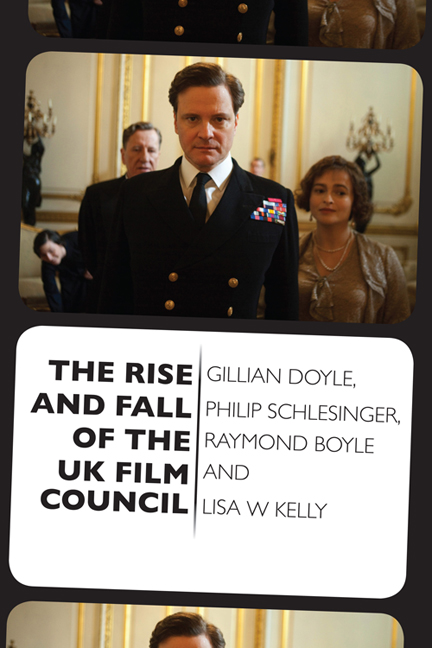Book contents
2 - Film Policy in the UK: 1920s–1979
from Part I - Background
Published online by Cambridge University Press: 05 September 2016
Summary
Mr Cohen asked the Prime Minister if he will make a statement on the Report of the Working Party on the Future of the British Film Industry.
The Prime Minister: The Report of the Working Party, chaired by Mr John Terry, was published as Cmnd. 6372 in mid-January. Since then we have given careful consideration to its analysis of the position of the film industry in this country and to its proposals. The Government accepts the value of a strong British film industry, able to take its place in a competitive international market and providing audiences, here and abroad, with an up-to-date image of our society and of the quality and power of our creative artists.
We have been particularly impressed by the two principal recommendations in the Terry Report, namely the need to strengthen the industry's financial position and the need for a single new body charged with overall responsibility for all aspects of the industry's activities.
(House of Commons Debate, 29 March 1976)The Hollywood switch has tended to turn the British film industry on for one decade and off for the next.
(Tunstall and Machin 1999: 134)Introduction
The long forgotten Terry Report on The Future of the British Film Industry (HMSO 1976), set up by Prime Minister Harold Wilson almost forty years ago, highlighted the fact that the relationship between the British state and the film industry had at its core a concern with both the economic importance and the cultural role of film in British society. It is no surprise, then, to find that since the early part of the twentieth century that state intervention in the policy arena has, at differing moments, reflected and grappled with these often competing concerns. This chapter maps out some of the significant moments in the evolution of film policy as it relates to the business and infrastructure of the industry in the UK and takes us up to the late 1970s. Over this period, a clear pattern is evident in that the film industry and its specific relationship to Hollywood shaped various state interventions that were mostly aimed at buttressing an indigenous industry and also focused on growing and developing the UK's capacity to compete internationally.
- Type
- Chapter
- Information
- The Rise and Fall of the UK Film Council , pp. 23 - 32Publisher: Edinburgh University PressPrint publication year: 2015



